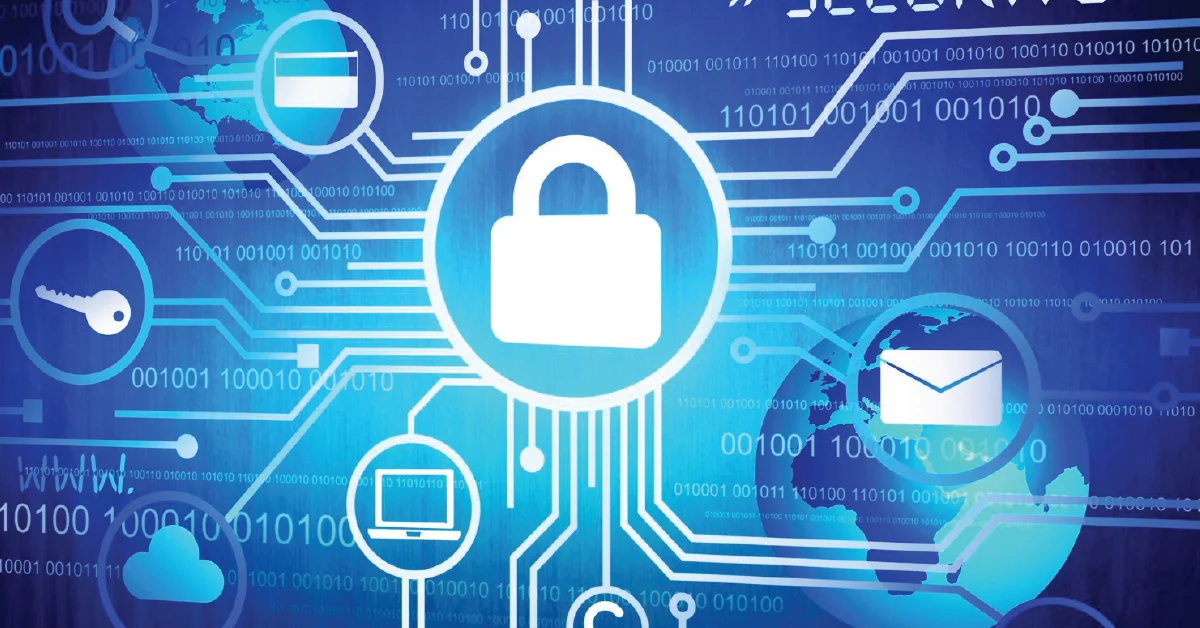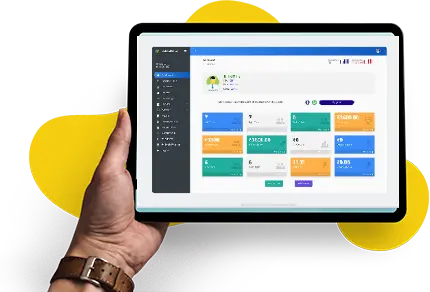One of the biggest threats facing businesses globally is cybercrime, especially the ones dealing with large amounts of money and personal information. As a result, cybersecurity is mission-critical for a multi-level marketing (MLM) firm.
The personal and financial information of your company, employees, customers, and distributors could be compromised if you do not protect your digital assets. The threat could arise from anywhere, including disgruntled employees, corporate spies, lone hackers, hacktivists, hostile nations, or even criminal organizations trying to send a message, make a quick buck, damage your operations, or expose sensitive information.
No matter where the threat is from, your MLM company has valuable information from operations, such as credit card payments, commission transactions to distributors, and online order processing, which needs to be encrypted and stored safely.
As a result, you need to be aware of the best cybersecurity practices to safeguard your vital information.
Understanding Cybersecurity for the MLM Industry

What is cybersecurity?
According to Cisco, cybersecurity involves protecting systems, networks, and programs from digital threats/ cyberattacks aimed at accessing, changing, or destroying sensitive information, extorting money from users via ransomware, or interrupting normal business processes.
Why is cybersecurity crucial?
Cyberattackers employ advanced tactics to disarm the digital defenses of firms trying to keep their information private.
Typically, when a company experiences a data breach, malware, or ransomware, it loses $200,000 on average and goes out of business in six months. Worryingly, by 2024, companies are set to lose about $5 trillion because of data breaches . Due to all these reasons, companies involved in direct selling need to take extra care to stay safe from cyber threats.
Risks Associated with a Lack of Cybersecurity in MLM Industry
The threats to network marketing companies from cyber attackers are complex and unique. So, you need to understand them in detail and implement a personalised strategy rather than taking on a generic solution from someone selling cyber security software.
When it comes to MLM companies , cyber attackers typically target individuals' personal or behavioural information because of their value in the dark web.
Here are the most frequent ways malicious individuals or organisations access this information and cause havoc.
Ransomware attacks
This attack typically involves malware sent to a target system via email, SMS, or in-app downloads. Once the malware infects the system, it can hold the system hostage until the victim pays a ransom to the attacker.
Ransomware attacks are common among businesses, such as MLM firms. On average, a small business pays about $5,900 in ransom. Once the owner pays the ransom, the attacker reveals the course of action to get the system back on track. Notably, no antivirus can detect or safeguard your systems from such an attack.
Malware
Typically delivered to your system by an external device or a network, malware or virus can run unauthorised actions automatically on your system. This attack can take down your servers/ hard drives, compromising all your distributor and customer information. Your business will face disruptions since your tech stack will malfunction, and most of your data will be corrupted or lost.
Cross-site scraping
Usually, in cross-site scripting, the attacker injects malicious script into your website, leading to compromised accounts, data, and applications. As a result, the attacker gets complete control over the website, which allows them to perform unauthorised actions on various customer or distributor accounts.
Phishing
Phishing attacks are the most common, with around 36% of data breaches originating from them. Attackers could email your customers or distributors, impersonating you and making them click on a malicious link. When the victim takes the action the attacker wants, personal information, including passwords, is exposed.
DDoS attacks
DDoS or Distributed Denial of Service attacks are becoming popular, with 5.4 million instances registered in the first half of 2021. In this scenario, spam traffic floods your website from remote locations, leading to your users experiencing website downtime.
An attack of this nature can disrupt the normal functioning of your business, given the digital and mobile-first world of today. For example, if you fall victim to this attack, you could find dozens or hundreds of customers unable to make payments, track shipments, or even get customer support from your website.
Building a Cybersecurity Strategy for MLM Industry

While every MLM owner strives to implement an antivirus and ensure compliance with the Payment Card Industry Data Security Standard, their steps are far from enough to combat the volume and complexity of modern-day cyberattacks.
A cyberattack happens almost every 39 seconds , so finding yourself on the receiving end of one is highly likely. It would result in disrupted operations, compromised customer information, and a destroyed reputation. You could even get sued for not taking the best possible care of loads of sensitive data that your customers and distributors trusted you with.
Compared to the hassle of dealing with these ramifications, putting together a coherent cybersecurity plan is a walk in the park.
Here are the best practices for safeguarding your company’s data in a sustainable and scalable manner.
Cybersecurity Policies and Procedures
MLM companies need to adopt a zero-trust framework. Every device, from mobile phones to servers, must be protected with authorized access. Taking this simple step of only allowing authorized personnel access to resources can reduce your risk of data breaches by 50% .
Cybersecurity Training for Employees
Every employee, including interns, needs to be trained in cybersecurity. Suppose you are worried about how you will accomplish selling cyber security training for all employees to your MLM partners or investors. In that case, you can inform them that billions of phishing emails are sent daily .
Your entire operation could be compromised if an employee opens one of these emails. So, it is crucial to invest in training for employees, making them aware of what email to open, how to set strong passwords, etc.
Regular Updates and Maintenance
The drives and the software employees use must be updated and maintained regularly to ensure they aren’t vulnerable to attacks. Attackers are known to target out-of-date systems running old, compromised MLM software that does not come with built-in protections against the latest attacks.
Importance of Incident Response Plan
MLM firms need to have procedures in place, like an incident response plan to deal with compromised data, such as triggering email alerts to system admins, management, or even customers, advising them to change their passwords.
Critical Components of Cybersecurity Strategy for MLM Industry

Data Protection
You must mandate frequent password changes and issue company devices to safeguard sensitive data. Another thing to remember is that cybersecurity awareness has to be seen by employees as a responsibility and not an obligation to protect your data. Make them participate in stealth tests or mock threats, giving them experience in cybersecurity issues.
Network Security
As an MLM business, you must consider getting a firewall because you will constantly communicate with customers and distributors worldwide. For enhanced safety, you can also have a virtual private network and a filter to keep out spam emails.
Access Management
Use a strict, organization-wide user access policy that lays down the rules for accessing and modifying sensitive information. Doing so will go a long way in helping you track the sources of data breaches and malware infestations.
Compliance with Industry Regulations
A great way to keep your company safe would be to stay compliant with regulations, such as GDPR, PCI/DSS, etc. Adhering to these regulations, which mandate that MLMs and similar businesses need specific standards when dealing with customers' personal and financial information, can save you a lot of pain in the future.
Cybersecurity Best Practices for MLM Industry

Use of Encryption
MLM firms need to encrypt their files on their servers and the cloud. Essentially, encryption hides all your sensitive information and makes it impossible to access without a key. This move will ensure the firm’s data is safe, even during personnel changes or the loss of a laptop or employee mobile device.
Implementation of Two-Factor Authentication
Implementing two-factor authentication, which often involves allowing access to emails and other applications by entering a password and an authentication code sent to a mobile phone, can protect your employees from hackers and malware.
Regular Backups and Data Recovery
If you are wondering how to sell cybersecurity to your investors or partners in a simple manner, your best bet is to pitch regular backups. Saving your information frequently to an external server or the cloud is a simple and foolproof way to protect your MLM business from ransomware. Depending on how crucial this data is, you can decide on the frequency of the backups.
Regular Vulnerability Scanning
When left unattended or unidentified for long, vulnerabilities in the system can cause disruptions in your business. As a result, your distributors and customers could lose confidence in you, and eventually, your reputation could become unfixable.
To avoid such a situation, MLMs need to implement measures to identify and fix vulnerabilities when they occur, along with learning from the setback and taking steps to prevent it from happening again.
Crucially, companies need a system to eliminate risks in real-time, restore compromised systems, and continuously monitor risk across all devices and applications.
Conclusion
Many companies that fall prey to cybersecurity attacks have management that thought they were too small or insignificant to catch the attention of a hacker. But as you can see from the blog, cyberattacks are rising by the second, and small to medium-sized businesses are no exception when it comes to being targets of malicious data breaches.
The reason for data breaches could be anything from employee incompetence to software or hardware vulnerabilities. By following the above best practices for encrypting your information, keeping employees aware of the latest cyber-attack tactics, upgrading your systems, and having an incident response plan, you can shield yourself from most attacks.
FAQ for Cybersecurity MLM Industry
1. What is a cybersecurity plan? Why does your network marketing business need one?
A cybersecurity plan details how you will keep your digital assets safe. Usually, a plan is made for only 3 to 5 years because cybersecurity threats keep evolving fast. As a vital part of the plan, you need to identify and prioritise the cyber threats your MLM will likely face and the steps you will use to minimise their damage to your reputation, customers, distributors, and employees.
2. What are the common cyber threats that an MLM company has to look out for?
Your MLM company has to safeguard many personal and financial information from stakeholders, such as customers, distributors, and employees. Since these people are spread over multiple locations, use devices with varying degrees of security, and have different awareness levels, they are easy targets for cybercriminals.
Your business could become the target of attacks, including malware, ransomware, phishing, and insider threats, which could quickly shut down operations, damage your reputation, and even extort money.
3. How can your MLM business develop a cybersecurity plan?
Start by assessing the cybersecurity threats that are common to your industry. Then, identify areas where your MLM is vulnerable. It could be untrained staff, out-of-date devices or MLM software, disgruntled employees, or external threats. Once you know the potential dangers, create your list of goals for three to five years.
This list of goals needs to include the upgrades you will make, the training you will provide, the tools you will implement, such as firewalls, VPNs, etc., and the amount of money you will spend on cybersecurity.
Ensure that your plan also details the steps or standard operating procedures to follow when a threat presents itself. Importantly, you need to track your cybersecurity plan’s effectiveness in real-time and update the processes regularly to keep up with the latest threats.







Comments
Leave a Reply
Your email address will not be published. Required fields are marked *